I was forced by courts for a 2 week evaluation 44 years ago. After 2 weeks in the infirmary, was moved into F ward. Was released 1 year later. Still to this day I wonder how much the person with the gavel received per child.
About Sagamore Children’s Psychiatric Center
They also have emergency services beds available for youth ages 5 to 17 who are experiencing a mental health crisis or family crisis. There’s also a crisis residential program for youth from 10-17 located on the grounds of Sagamore Children’s Psychiatric Center. Other mental health crisis and respite beds are available through residential, group home, or licensed family homes.
The inpatient child and adolescent psychiatric program provides support and structure to help them gain the strength, skills, and treatment needed to lead a productive, healthier, and happier life in community after their admission. The treatment team includes child and adolescent specialists including recreation and art therapists, pediatricians and psychiatrists, psychologists, social workers, educational teachers and direct care staff. hey have their own school to ensure that therapy and treatment doesn’t interfere with a child getting a solid education.
There’s also an intensive treatment program (IOP) for youths with neurodevelopmental disorders such as Autism. This program is for youth between the ages of 10-18. It offers each child an environment with a great deal of structure, predictability and provides sensory, visual, and educational support to meet individual needs.
Outpatient treatment has a few different options depending on a child’s needs. There’s a program specifically for the ICAN program that treats those with neurodevelopmental disorders. This program is available for children from kindergarten to grade 8.
There’s an intensive day treatment program which is 30 days in length and helps provide comprehensive mental health support to children and youth who are struggling with daily life and their current school curriculum.
Day treatment and school based mental health clinics are offered which include individual and group trauma-based psychotherapy. Cognitive behavioral therapy and play therapy are a part of this program. Family systems treatment and case management are also provided to children and their families as they participate in this program.
A children’s mobile integration team provides voluntary, home-based therapy options to families to help reduce the need for hospitalization.
No family or child is turned away due to lack of finances. Most health insurance plans are accepted but it is vital that you verify with your personal health insurance provider what coverage you have, whether they are in-network, and if you will have any financial obligations out of pocket for treatment.
Latest Reviews
Rehab Score
Location
Accepted Insurance
Other Forms of Payment
Private insurance refers to any kind of healthcare coverage that isn't from the state or federal government. This includes individual and family plans offered by an employer or purchased from the Insurance Marketplace. Every plan will have different requirements and out of pocket costs so be sure to get the full details before you start treatment.
Self-pay involves paying for treatment out of your own pocket. You can use savings or credit, get a personal loan, or receive help from family and friends to fund your treatment. If you don't have insurance or your insurance plan doesn't cover a specific program, self-pay can help ensure you still get the care you need.
Sliding scale payments are based on a client's income and family size. The goal is to make treatment affordable to everyone. By taking these factors into account, addiction recovery care providers help ensure that your treatment does not become a financial burden to you or your family, eliminating one barrier to care.
Medicaid is a state based program that helps lower-income individuals and families pay for healthcare. Medicaid covers addiction treatment so those enrolled can use their coverage to pay for rehab. When a program accepts Medicaid the client often pays very little or nothing out of their own pocket.
Medicare is a federal program that provides health insurance for those 65 and older. It also serves people under 65 with chronic and disabling health challenges. To use Medicare for addiction treatment you need to find a program that accepts Medicare and is in network with your plan. Out of pocket costs and preauthorization requirements vary, so always check with your provider.
Addiction Treatments
Levels of Care
Outpatient rehabs offer an intermediate level of care for clients who do not require the kind of intensive supervision and support an inpatient program typically provides. Many clients transition into outpatient care immediately after exiting inpatient treatment. Others enter outpatient programs upon completing detox. Some facilities offer ambulatory medical detox for clients who do not require hospitalization. Most outpatient rehabs offer a combination of services, including addiction counseling, life skills training, and medication assisted treatment (MAT).
Residential treatment programs are those that offer housing and meals in addition to the treatment. Sagamore Children's Psychiatric Center is designed to treat children and teens to treat emotionally disturbed youngsters who require the treatment. The length of stay varies according to youngsters' needs.
Clients in rehab aftercare programs receive a customized portfolio of services designed to promote their sustained sobriety. These clients have completed high-level treatment, are typically exiting detox and/or intensive inpatient care and are reintegrating into their home, workplace, and community. Rehab aftercare services address addiction disease as a chronic condition requiring continuing care. Clients typically work with case managers and recovery teams to access necessary resources, such as peer coaching and 12 step program induction support.
A partial hospitalization program (PHP) is a short-term form of intensive rehab, usually for those with acute symptoms that are hard to manage but don’t require 24-hour care. PHPs have structured programming (i.e. individual and/or group therapy), and usually meet 3-5 days a week for around 6 hours (i.e. 9am-3m). Some PHPs are residential (patients sleep on site) and some are not, so patients sleep at home. PHPs can last from 1-6 months, and some offer transportation and meals.
For many different stages and therapies offered during addiction treatment, it's essential to offer 24-hour clinical care in New York. often involves medication treatment for drug or alcohol detox. The withdrawal symptoms experienced during detox can be dangerous, but having medical experts on-site around the clock means someone is always there to step in and provide emergency medical care when and if it is ever needed.
Treatments
Mental health rehabs focus on helping individuals recover from mental illnesses like bipolar disorder, clinical depression, anxiety disorders, schizophrenia, and more. Mental health professionals at these facilities are trained to understand and treat mental health issues, both in individual and group settings.
Programs
Adult rehab programs include therapies tailored to each client's specific needs, goals, and recovery progress. They are tailored to the specific challenges adult clients may face, including family and work pressures and commitments. From inpatient and residential treatment to various levels of outpatient services, there are many options available. Some facilities also help adults work through co-occurring conditions, like anxiety, that can accompany addiction.
Recovery is most successful when clients feel accepted and validated by their peers and treatment providers. Facilities that offer LGBTQ-inclusive programming are committed to creating a safe space where everyone can grow and recover without fear of judgment or discrimination. They will have dedicated policies in place to create a safe and supportive environment that fosters free expression.
Clinical Services
Cognitive Behavioral Therapy (CBT) is a therapy modality that focuses on the relationship between one's thoughts, feelings, and behaviors. It is used to establish and allow for healthy responses to thoughts and feelings (instead of unhealthy responses, like using drugs or alcohol). CBT has been proven effective for recovering addicts of all kinds, and is used to strengthen a patient's own self-awareness and ability to self-regulate. CBT allows individuals to monitor their own emotional state, become more adept at communicating with others, and manage stress without needing to engage in substance abuse.
Group therapy is any therapeutic work that happens in a group (not one-on-one). There are a number of different group therapy modalities, including support groups, experiential therapy, psycho-education, and more. Group therapy involves treatment as well as processing interaction between group members.
In individual therapy, a patient meets one-on-one with a trained psychologist or counselor. Therapy is a pivotal part of effective substance abuse treatment, as it often covers root causes of addiction, including challenges faced by the patient in their social, family, and work/school life.
Trauma therapy addresses traumatic incidents from a client's past that are likely affecting their present-day experience. Trauma is often one of the primary triggers and potential causes of addiction, and can stem from child sexual abuse, domestic violence, having a parent with a mental illness, losing one or both parents at a young age, teenage or adult sexual assault, or any number of other factors. The purpose of trauma therapy is to allow a patient to process trauma and move through and past it, with the help of trained and compassionate mental health professionals.
Research clearly demonstrates that recovery is far more successful and sustainable when loved ones like family members participate in rehab and substance abuse treatment. Genetic factors may be at play when it comes to drug and alcohol addiction, as well as mental health issues. Family dynamics often play a critical role in addiction triggers, and if properly educated, family members can be a strong source of support when it comes to rehabilitation.
As you recover from addiction, eating the right foods will help you heal and build your health for long term sobriety. Nutrition therapy teaches you about the nutrition your body needs and how to eat the right foods to support your recovery.
Recreational therapy (aka therapeutic recreation) uses creative and fun activities to help with addiction recovery. Recreational therapists lead patients in entertaining and engaging activities like sports or games; art (drawing, painting, sculpture); drama, music, and dance; and/or community outings (field trips) to improve patients' physical, social, and emotional well-being.
Amenities
-
Private Transportation
-
Residential Setting
-
Private Rooms
-
Gardens
Staff & Accreditations
Staff

Dr. Ann Marie T. Sullivan, MD
Commissioner
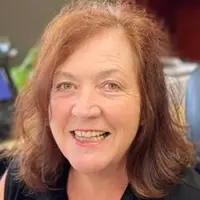
Moira Tashjian, MPA
Executive Deputy Commissioner
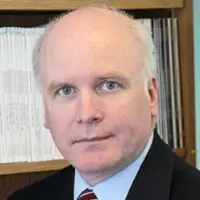
Thomas Smith, MD
Chief Medical Officer
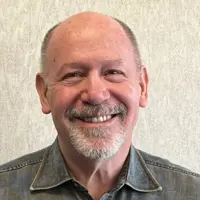
Robert Moon
Deputy Commissioner, Community Program Policy and Management
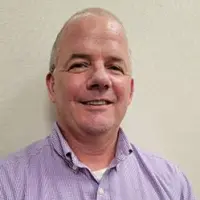
Gerald M. Engel, RPH, MBA
Associate Commissioner and Chief Medical Informatics Officer
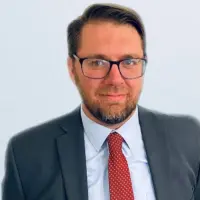
Michael J. Izzano
Associate Commissioner & Director, Center for State & Community Workforce Development & Human Resources
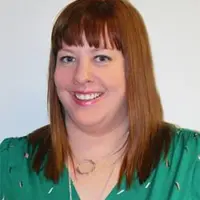
Amanda Saake, LMSW, CPRP, NYCPS-P
Chief Advocacy and Peer Support Services Officer

Talia Santiago-Bonds, MPH
Chief Diversity Officer & Director, Office of Diversity & Inclusion and Bureau of Reasonable Accommodation
Accreditations

The Substance Abuse and Mental Health Services Administration (SAMHSA) is a branch of the U.S. Department of Health and Human Services. Established in 1992 by congress, SAMHSA's mission is to reduce the impact of substance abuse and mental illness on American's communities.
SAMHSA Listed: Yes

State Licenses are permits issued by government agencies that allow rehab organizations to conduct business legally within a certain geographical area. Typically, the kind of program a rehab facility offers, along with its physical location, determines which licenses are required to operate legally.
State License: New York

The Joint Commission, formerly known as JCAHO, is a nonprofit organization that accredits rehab organizations and programs. Founded in 1951, the Joint Commision's mission is to improve the quality of patient care and demonstrating the quality of patient care.
Joint Commission Accreditation: Yes
Accreditation Number: 3289
Contact Information
197 Half Hollow Road
Dix Hills, NY 11746

